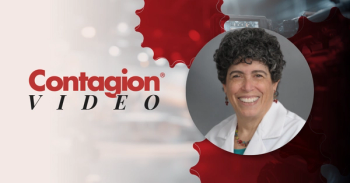
Potential Antimicrobial Stewardship Interventions
John Nosta, BA: Are pharmaceutical companies active participants in the management of misuse and overuse? Or are they financial companies trying to sell their products? Obviously, they report to investors, but they also report to clinicians and patients. How do you feel, as a clinician, about that dynamic in the marketplace?
Debra A. Goff, PharmD, FCCP: I see them as partners. At our institution they’ve always been an extension of what I do. I can’t be everywhere. So they come and educate our physicians, but I make sure their message is consistent with your message. Sometimes they might have an antibiotic that has 5 FDA- approved indications. At my hospital, I only want it used for this 1 indication. And so, we partner. They’re an extension of our marketing to our own physicians. “This is the way this antibiotic is going to be used at our hospital.” This is the best way because I match it with what our organisms are in our hospital, and that differs everywhere.
So we are reliant. They’re the ones who discover the drugs. Without pharmaceutical companies we have no products. That is part of the problem right now. They are companies that have to make a profit, and antibiotics are not profitable antibiotics. Actually, from a marketing perspective or a business perspective, they are really a poor drug to select.
John Nosta, BA: Most of them are off patent, right? A lot of the mainstream cephalosporins, beta lactams, and even the quinolones are not on patent. So there isn’t a lot of marketing pressure to drive use or support use or justify use.
You talked about being a psychiatrist or psychologist. To me, it’s very interesting. In the hospital there’s a bit of hegemony. There’s a control structure. How does that work?
Debra A. Goff, PharmD, FCCP: That’s why I should have gotten that degree.
John Nosta, BA: There’s the infectious disease specialist, the general practitioner, the chief of medicine, and the pharmacist and the emerging role of the pharmacist, which is important. Do they play nice in the sandbox? Are there ways of evolving that relationship?
Debra A. Goff, PharmD, FCCP: There is clearly a hierarchy. I work globally and see that to be even more prevalent. In the United States, we really work as partners. I work with infectious disease physicians and we’re a team. When we make patient care rounds, it’s the physician, the clinical pharmacist, the nurse, the medical student, pharmacy student, and the resident. We are one big team. We work collaboratively. But let’s be honest, the physician is legally responsible for the patient. I consult and I give them my best advice. The pharmacist is an integral part of patient care because we’re the drug therapy experts.
John Nosta, BA: Right. Collaboration in the context of antimicrobial stewardship is a little dangerous. If you want a white house and I want a red house, is the collaborative solution a pink house?
Debra A. Goff, PharmD, FCCP: So that’s a good analogy. Antibiotic stewardship only works if there is collaboration. If I go and try to tell my surgeons, “You cannot do this any longer,” and I just give them a set of rules, I already know that’s not going to work. Nobody wants to just be told that what they’ve been doing for 20 years is not going to be done any more, unless they understand your motivation. And so, I always go in for collaboration.
I bring them to the table, whatever group I’m talking with—whether it be surgeons, the hospitalist, the critical care physician—and say, “Here’s the problem. We have this escalating antimicrobial resistance in your unit.” I bring factual data. “Here are the last 100 patients we’ve treated, and here have been their outcomes with the antibiotic you’ve been selecting. At this point in time, we have to make a change, and this is what I’m recommending.” And then I stop and listen to them.
John Nosta, BA: Just in my limited clinical experience about the surgical mentality, they do everything and know nothing. I hope I won’t get into trouble with this.
Debra A. Goff, PharmD, FCCP: Oh, you will.
John Nosta, BA: And the medical guys know everything and do nothing. Is there a method to the madness?
Debra A. Goff, PharmD, FCCP: There is. How I work and speak with surgeons is different. I’ve worked with a lot of surgeons and have a lot of respect for them, and it’s mutual. We work well together. But they’re very much in the moment. “Tell me right now, very quick.” They want sound bites. They don’t want a dissertation of why “this is the antibiotic I’m recommending, and here’s the mechanism of action.” They’re like, “Just tell me what I need to know, what I need to prescribe, and why.”
So they want to be educated. “Here’s what’s best for your patients and I’ve got your hand.” I’m going to come back and make sure what I recommended actually worked. When I talk to a hospitalist, they want that whole story.
They’re going to give more time. “Explain to me, Debbie, why we would use this. I’m used to using that.” So there is a different style. As an antibiotic steward, I have to know that style to be most successful. It’s not one-style-fits-all. Or, as I say, one-stop shopping. You can’t do that. Every physician has their own personality and style, and you’ve got to know that type of style to be most effective.
John Nosta, BA: Excellent. This is a fascinating discussion.
Debra A. Goff, PharmD, FCCP: It is.
John Nosta, BA: I look forward to the next steps.
Debra A. Goff, PharmD, FCCP: Thanks.
Newsletter
Stay ahead of emerging infectious disease threats with expert insights and breaking research. Subscribe now to get updates delivered straight to your inbox.

































































































































